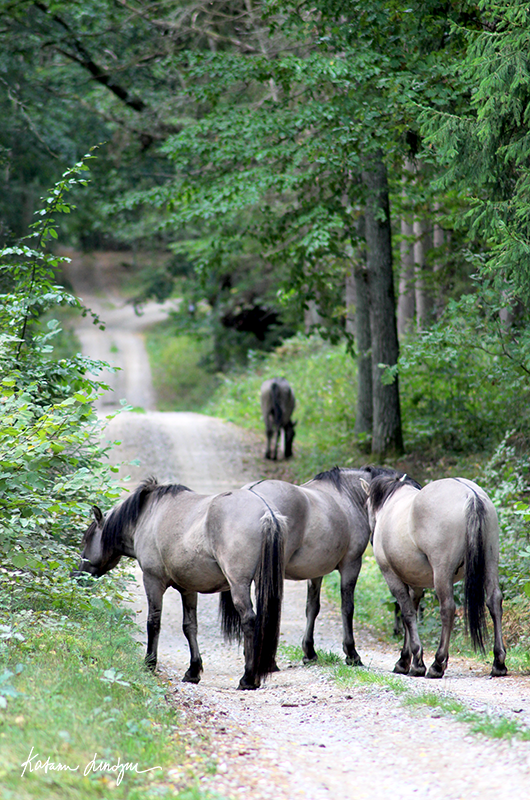Relational Ecology — ECO-Mindfulness and Ecotherapy
 I talk about Ecodynamics, as a complement to psychodynamics, biodynamics and sociodynamics.
I talk about Ecodynamics, as a complement to psychodynamics, biodynamics and sociodynamics.
Ecodynamics explores our relationship with our surroundings, and especially our connection (or disconnection) from “nature”. I put nature in quotation marks as we as humans are not separate from nature — we ARE nature. But conventionally, nature is talked about as a place or our environment.
In Eco-mindfulness and ecotherapy — we work with whatever relationship you have with nature. And as I mentioned above, you are, by this simultaneously working with your relationship with yourself as well. But you are also working on your relationships with other people (and beings), or succinctly put — you are working on your relationships. Period.
I work in rewilding of humans. I call my workshops and courses “Rewild your Heart”. It is a name I have borrowed from a book by Marc Bekoff — his book is called “Rewilding Our Hearts: Building Pathways of Compassion and Coexistence” (2014).
At the workshops we often go off into the wilder parts of nature, to observe feral-living horses, or sometimes, “just” wildlife and “nature” in general. To me it is extra-interesting with the parallel between feral-living horses and humans. The horses we find in nature, are often horses that have rewilded themselves, or feralized themselves. But also, the horses we humans let out for conservation grazing, or for other reasons, adapt as quickly to a more feral-wild life as the ones that rewilded themselves. It is as if they are doing what we need to do — reclaim ourselves as humans, as the horses are reclaiming their ways of living like horses, being horses.
I have seen feral-living horses in so many different settings now that I know that they really do not need humans to thrive, as a species. They need us more to keep away and stop managing their environment. But as for many other wild-living species, there are few places on earth they can live in without human disturbance, management, building, farming and so on.
Figuring out co-existence is therefore paramount.
Another advantage of having a special group of beings to observe, that you know quite well (we all know horses in one way or another), is that you can practice your “art of seeing”. Meaning you practice your own self-awareness, as seeing anyone else, is based on your understanding of yourself, your own lenses, biases, triggers and so on. Because we do not see anyone as they are — we see them as we are. And then knowing ourselves becomes the way to see anyone else.
And with this practice of self-awareness, we offer also more body-based, non-verbal ways of processing and expressing new insights that is often emerging in these workshops.
The result of this process is often a deep connection with “nature”, as you connect deeper with yourself.
In this practice of awareness, using our senses, we often also feel the relational aspect of being in nature, around nature. Nature itself becomes an agent. An active participant in a dialogue, not only a beautiful (or demanding) backdrop to whatever adventure we want to experience. And the beings living where we visit, are not only being observed, we are also, of course, observed back. There is always an interactive part.
This relationship, this ecological relationship is not different from any other relationships we have, apart from that it will steadily and always be there, in one shape or form or the other. A tree will not leave, not by itself. It might fall over, but it will not actively walk away from you. There is a continuity in nature. It shifts and change — but it is there. You can lay down on the ground, and the ground will have your back. You can lean against a tree, and it will support you. You can sit by a creek, and it will talk to you, you can climb a hill — and it will give you a viewpoint. You can be out in the wind or the rain, and it will touch you.
A feral-living horse might walk away or might not want any near contact with you. And then it gives room for discussing what is personal and what is not.
Whatever happens and whatever we observe — there will be emotional, personal work, to do. Even when you feel disconnected. Even when you “use” nature as dissociation. Which also happens (and more often than we think, everything can be used to disconnect — any relationship can be “used” as an excuse to not have to get to know ourselves better).
But — it is always a question about pace and titration. To not force anything.
I love this work! Having solely worked with horses in domestic settings for many years, even if many of them lived out 24/7 in big pastures, this working with them where they live, out in the wilder parts of nature — has added so much to my own understanding and has formed my base of how I see rewilding work with and for humans.
If you feel curious about this kind of work, read more about us at MiMer Centre's website “Rewild your Heart”.
Picutres: Are my own and taken in the Popielno Nature Reserve in Poland. These are feral-living Konik horses.
This is a cross-post, also posted at Medium: Relational Ecology — ECO-Mindfulness and Ecotherapy
When you subscribe to the blog, we will send you an e-mail when there are new updates on the site so you wouldn't miss them.


Comments